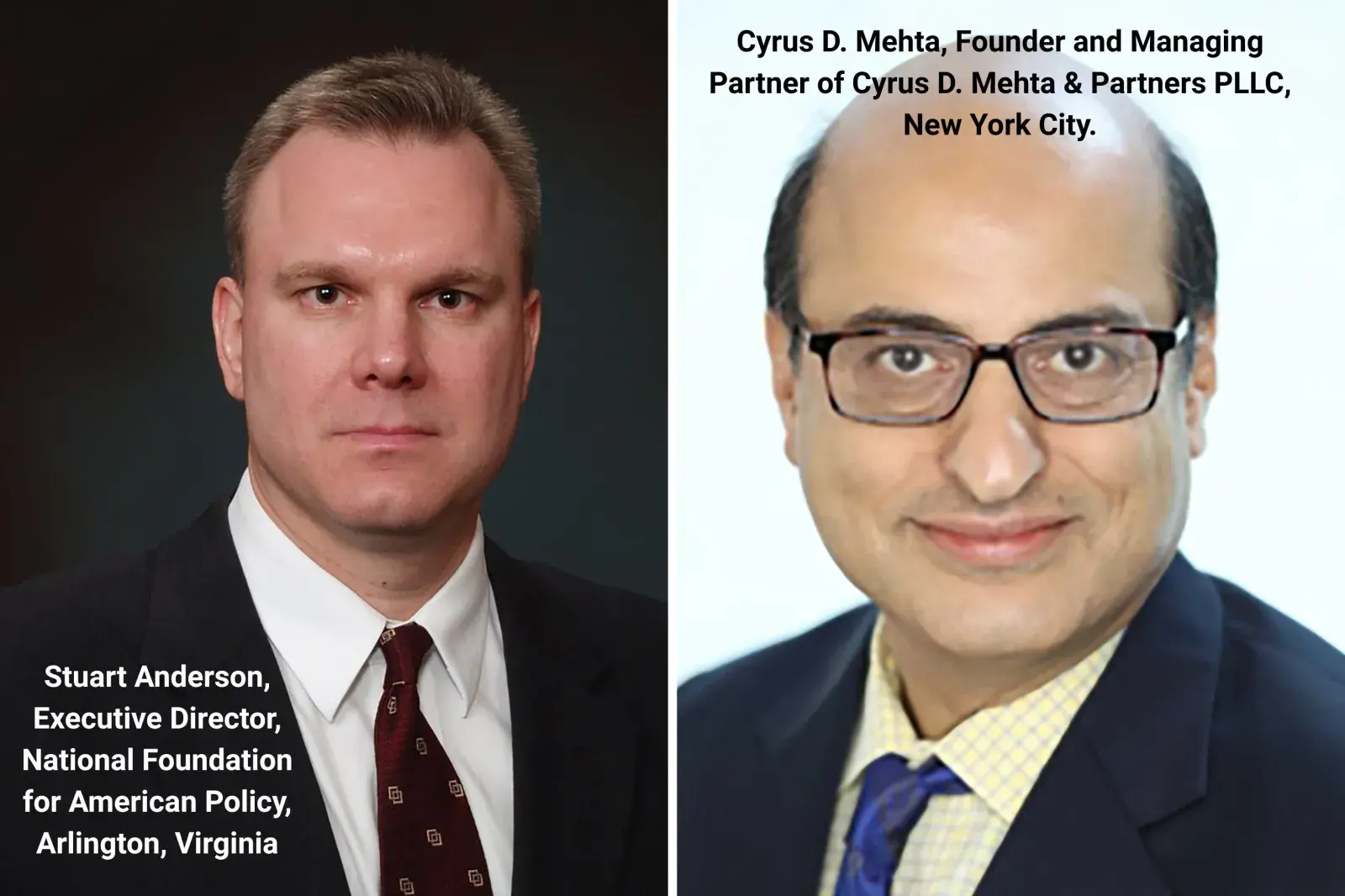By Robert Alexander
Copyright newsweek

The Trump administration’s recent proclamation imposing a $100,000 supplemental fee on H-1B visa petitions, combined with plans to alter how visas are allocated, has triggered alarm across legal, business and policy circles. Immigration attorneys warn of confusion and economic disruption, while analysts suggest the rule may mark a decisive shift in America’s approach to high-skilled immigration.
Newsweek sought comment from immigration attorneys and from businesses, large and small, across the country affected by the changes.
Why It Matters
The stakes extend far beyond immigration paperwork. By raising costs and reshaping how visas are awarded, the Trump administration’s policy could alter the country’s ability to attract and retain global talent, from engineers and scientists to doctors in underserved communities.
Supporters argue the changes protect American jobs, but critics warn they will sideline recent graduates, squeeze smaller employers and drive companies to shift work abroad—an outcome that could weaken U.S. competitiveness in technology, health care and higher education.
What To Know
The H-1B visa program, which allows U.S. companies to employ foreign workers in specialty occupations, has long been a flashpoint in debates over globalization, innovation and domestic job protection.
Each year, demand for the 85,000 available visas far outstrips supply, leading to a random lottery to allocate them. International students graduating from U.S. universities, technology companies, hospitals and school districts are among the many stakeholders.
(L) Stuart Anderson, National Foundation for American Policy; (R) Cyrus Mehta, Cyrus D. Mehta & Partners PLLC | (National Foundation for American Policy/Cyrus D. Mehta & Partners PLLC)
The $100,000 Fee
President Donald Trump’s September 19 proclamation introduced a requirement that employers pay $100,000 for each H-1B visa holder entering the country. The fee, which must be paid upfront, represents a dramatic increase from existing filing costs.
The Department of Homeland Security has not yet clarified how the fee will be collected, how it will be spent or whether exemptions will be made for renewals or extensions.
Stuart Anderson, executive director of the National Foundation for American Policy, described what he sees as the first step in a wider campaign: “The proclamation placing a $100,000 fee on the entry of H-1B visa holders is the first in an expected series of measures designed to restrict high-skilled immigration,” Anderson said.
He warned that such a policy would privilege senior executives over recent graduates: “If the Trump administration shifts H-1B selection using the Department of Labor’s salary scale that identifies the amount of experience to fill a position, it would push the country’s talent acquisition policy toward a type of central planning, and one that makes no sense for fostering innovation.”
(L) Mona Shah, Mona Shah & Partners Global; (R) Cecilia Esterline, Niskanen Center | (Mona Shah & Partners Global/ Niskanen Center)
Industry and Worker Impact
Attorneys say the cost increase will reshape employer hiring decisions. “The $100,000 supplemental fee will completely eviscerate the H-1B program, and it would just impede and discourage employers from hiring H-1B workers,” said Cyrus Mehta, a New York-based immigration lawyer.
He noted that the combination of the fee and the administration’s proposal to weight selection by salary “would be a total disincentive for graduates to get hired in the U.S.”
For businesses, particularly smaller companies and nonprofits, the added cost could be prohibitive.
Historically, H-1B sponsorship has been concentrated in large tech companies such as Microsoft, Google and Amazon, as well as Indian IT services firms like Infosys and Wipro.
But the program also supports employers in less visible sectors, including rural hospitals, universities, and school districts recruiting math and science teachers. Critics argue these employers will find it impossible to shoulder the additional financial burden.
Cecilia Esterline, senior immigration policy analyst at the Niskanen Center in Washington, D.C., emphasized the confusion and ripple effects already hitting employers and international students: “We’ve seen people scrambling to change flights, companies advising employees not to travel, and small nonprofits suddenly wondering if they can put up another $100,000 for a petition they’ve spent weeks preparing. That kind of confusion is not just disruptive—it risks pushing startups and talent to Canada or elsewhere. If employers can’t plan with certainty, many will look abroad for stability,” she said.
Mona Shah, founder and managing partner of Mona Shah & Partners Global in New York, said employers are already recalculating recruitment strategies: “The immediate backlash we are witnessing is that potential applicants and co…



